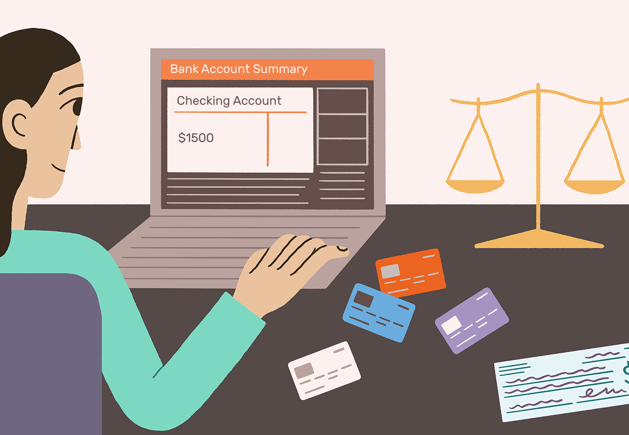How to Choose The Right Bank Account
So you're looking to open a bank account, but, understandably, you're not quite sure where to start.
Table of Contents
Maybe you're overwhelmed by the number of bank options to choose from, or you're not sure which type of bank account is the best for your needs. Or maybe you don't understand the differences between various banking services or how higher interest rates and fees can affect you.
Whichever of these questions you may have, it's important to do your research on the bank you decide to partner with, and the kind of account(s) you choose. Especially when starting with a new bank, be sure to read the fine print so you don't miss any terms and conditions, fees and charges, or other important information.
From checking accounts, savings accounts, and more, you want to be smart with where you put your money. You'll also want to have access to a local branch in case of potential emergency withdrawals and make sure of certain benefits like being able to withdraw money using a debit card without facing ATM fees.
First, let's dive into the types of bank accounts you have to choose from:
1) Checking Accounts are a common bank account type and are typically used for everyday banking purposes. Checking accounts often take on the form of online banking and offer flexibility in how you are able to access your money, making it a relatively easy place to store, access, and withdraw money without much hassle.
However, you'll want to consider a few things, including overdraft fees and interest rates. If you tend to be a little loose with spending close to the amount in your account, you'll want to find a checking account with a lenient overdraft policy. This way, if you ever accidentally overspend or get too close to your minimum amount, your bank will instill less harsh consequences. Similarly, if you're looking to accrue interest on your money, you'll want to look for a checking account that offers a high interest rate percentage.
2) Savings Accounts are another form of online banking commonly offered by traditional banks. They serve as a good place for you to store cash if you're saving up to reach your financial goals, wanting a place to set aside monthly maintenance fees, or keeping an emergency fund. However, it's not the best place to accrue interest on your money. Oftentimes, credit unions or online financial institutions will offer lower fees and better interest rates on savings accounts, so it's best to do your research and find a good match for your needs.
3) Money Market Accounts - If savings accounts and checking accounts had a baby, this bank account would be it. Money market accounts are a type of bank account that give you limited access to your money through avenues like debit cards or checks (typically up to six withdrawals or transfers), but still offer a higher interest rate than that of traditional savings accounts.
4) Individual Retirement Arrangements (IRAs) - If you've ever been a young professional, you've probably received advice to invest in an IRA. IRAs are a savings tool created by the IRS to help people save for retirement, meaning the money you deposit into that account will need to stay there for a while. There are two major types of IRAs:
- A Roth IRA, which requires no age limit to when the minimum amount must start being withdrawn from the account, is a retirement savings account that allows people to contribute post-tax dollars. A Roth IRA will tax the contributions you make but not the withdrawals.
- A traditional IRA: A traditional IRA allows you to make tax-free contributions, but will charge taxes on withdrawals, which will increase as the money you invest in it grows. However, traditional IRAs can present lower tax rates, especially if you’re making less in retirement.
With IRAs and other retirement accounts like 401(k)s, you can consult a financial services professional to help you understand how much to save, where to save it, and how to best maximize your gains and losses.
5) Certificates of Deposit (CDs) - CDs are a fantastic place to store your money if you want to accrue better interest amounts than what checking or savings accounts will grant you. However, you'll have to commit to a longer fixed-term in order to avoid withdrawal fees. CDs have a maturity date, or a set date and time that you can take your money out, making them a good option for putting money towards a specific financial goal.
In the event that you are looking for some flexibility when it comes to making withdrawals, look for a bank that offers lenient withdrawal fees.
Now that you know the different types of bank accounts available to choose from, let's summarize:
- Research the different bank account types in depth to determine which of the options works best for the situation you're in. This way, you can optimize your time and resources going forward once you've chosen a bank.
- Understand what you're getting yourself into. Make sure you know the different costs and fees associated with the bank account, as well as the benefits and perks. What are the overdraft policies? Will you be charged if you try to withdraw money over a certain number of times, or before a certain date? What kind of interest rates do they offer? Do your homework and you will reap the rewards!
- Create goals that you can work towards! If you're willing to do the work of researching the right bank and bank account for your needs, chances are you have a goal you want to achieve. Let these motivate you to save or put money towards things that matter to you.
And you're set! Consult one of our financial professionals today to learn more about your options.


